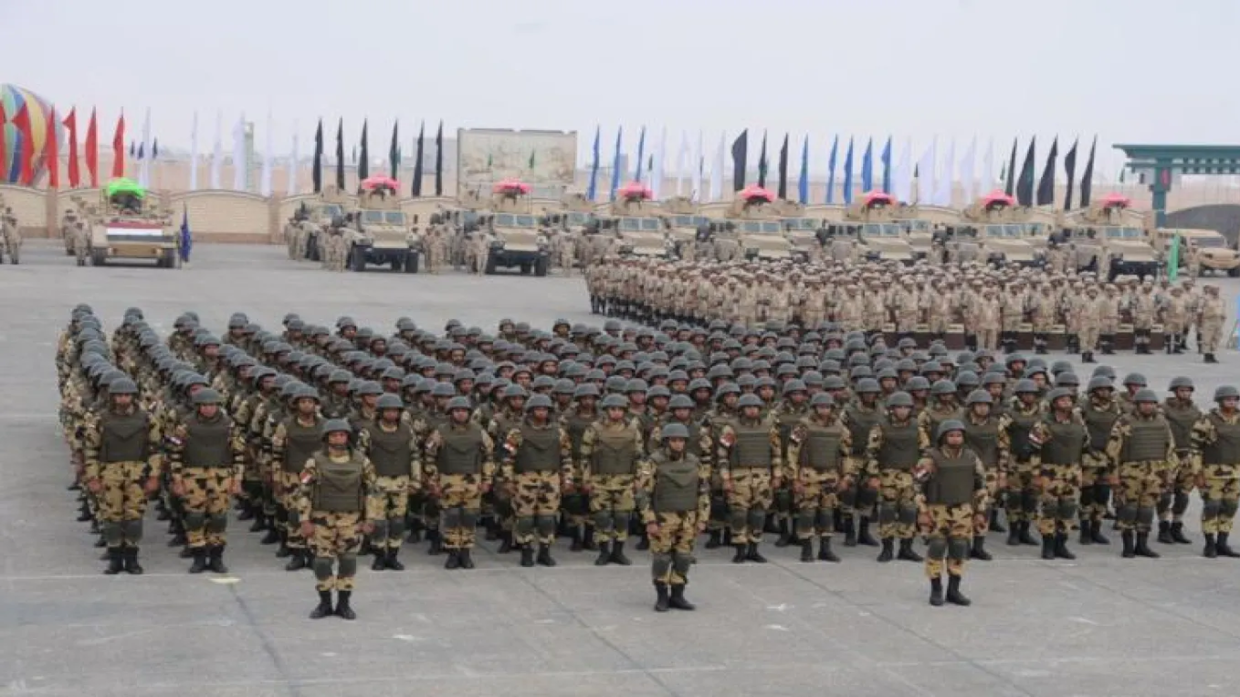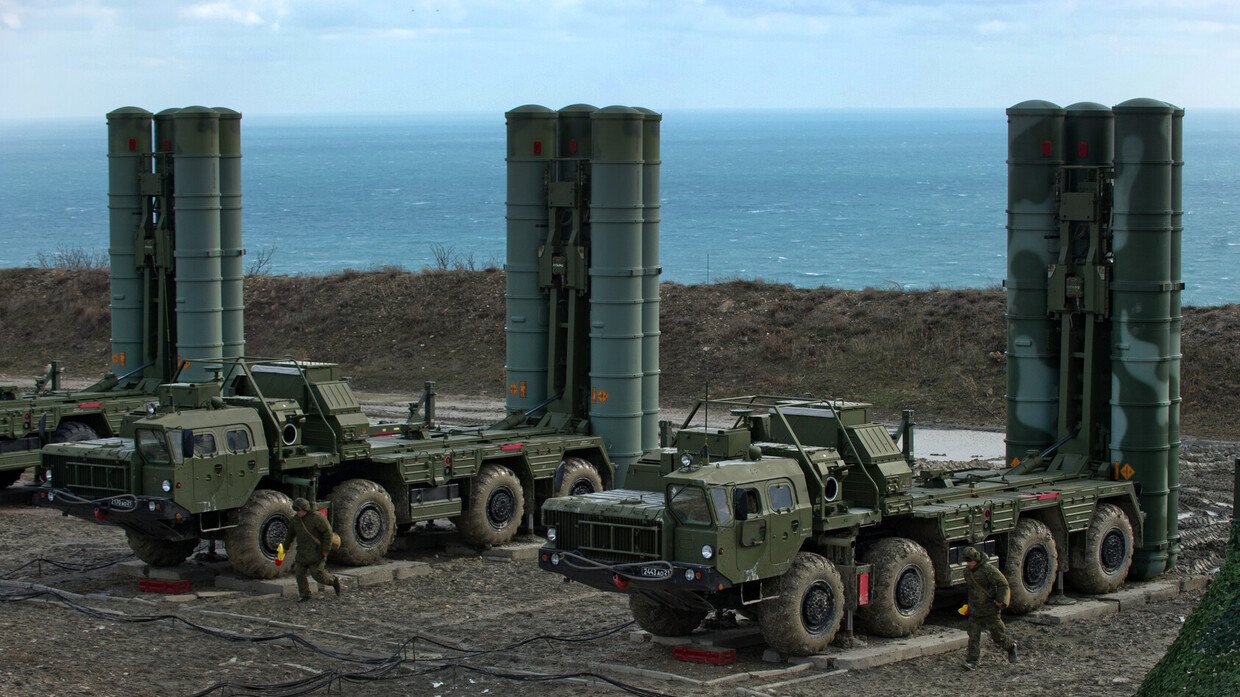What Lies Behind ‘Israel’s’ Growing Fear of Egypt’s Military Power?

“Israel” believes Egypt's army is steadily growing and expanding.
Following the collapse of the Syrian regime's army and the fall of Bashar al-Assad, Israeli think tanks and media outlets have increasingly focused on the remaining Arab army that poses a potential threat to “Israel.”
That army, they argue, is Egypt's — a source of growing concern amid fears of shifting political dynamics in Cairo and the potential downfall of President Abdel Fattah el-Sisi's regime, mirroring the scenario in Syria.
This Israeli anxiety was further exacerbated by the rapid fall of al-Assad on December 7, 2024, and reports suggesting that el-Sisi sought “Israel's” assistance, fearing the onset of a new Arab Spring, one potentially led by the Muslim Brotherhood.
Since the establishment of “Israel” in 1948, one of its primary objectives has been to neutralize or subdue the Arab armies that threaten its existence.
This effort, aimed at consolidating “Israel's” military superiority and advancing its expansionist, biblical-driven agenda, has historically targeted Egypt, Syria, Iraq, and Algeria.
The dismantling of Iraq's military during the 2003 U.S. invasion, coupled with the 1981 Israeli airstrike that destroyed Iraq’s nuclear reactor, marked significant milestones in this strategic goal.
The collapse of the Syrian military with al-Assad’s fall was the second major victory, leaving Egypt's military — still the largest and most powerful of these forces — as the last significant hurdle to Israeli dominance, despite the normalization of relations and its subsequent military constraints.
Amid “Israel's” war on Gaza, Israeli propaganda surged, speculating on the reasons behind Egypt's growing armament and the possibility of confrontation.
This intensified after “Israel” occupied the Gaza border area, specifically the Salah al-Din corridor (Philadelphi route).
Egypt's silence over “Israel's” violations of the Camp David Accords in the border region, including the killing of Egyptian soldiers across the border, had once assuaged Israeli fears.
Yet, with the fall of al-Assad’s regime, Israeli anxiety has returned with greater intensity, as the specter of Egypt’s military turning against “Israel” becomes more plausible should a shift in Cairo's political landscape occur.

If ‘Muslim Brotherhood’ Returns?
These Israeli concerns were reflected in a warning issued by former Israeli ambassador to Cairo, David Govrin, regarding potential political shifts in Egypt, reminiscent of the scenario in Syria.
In an interview with Yedioth Ahronoth on December 23, 2024, Govrin expressed his unease over Egypt’s expanding military capabilities, particularly its substantial investments in defense spending.
He feared that such advancements could fall into the hands of a new regime should political changes occur in Egypt similar to those that unfolded in Syria.
Govrin stressed that “Israel” must consider Egypt’s growing military power and refrain from interpreting it through the lens of Egypt's positive intentions.
"These intentions could easily change with a change in regime," he warned, referencing both the upheaval in Syria and the rise of the Muslim Brotherhood in Egypt in 2012.
He also pointed to a key lesson “Israel” learned from the Hamas attack on October 7: never to rely on interpretations of surrounding developments based on the intentions of others, but instead to deeply study their mindset and closely monitor the building of their capabilities.
Having served as “Israel’s” ambassador to Egypt from July 2016 to May 2019, Govrin highlighted his concern about Egypt’s massive spending on military capabilities, especially in the infrastructure around the eastern side of the Suez Canal, despite Egypt not facing any direct military threats at present and grappling with a difficult economic situation.
"Egypt views Israel as a threat due to its advanced military capabilities," Govrin stated, noting that many Egyptians still regard “Israel” as a colonial power occupying Palestinian land.
Meanwhile, Israeli military analyst and expert, Amit Yagur, issued a stark warning about what he described as a "new Sunni axis" that could emerge in the wake of the fall of al-Assad's regime in Syria, forged through collaboration with Turkiye and potentially extending into Egypt, should the political landscape there shift in the future.
Speaking to Maariv on December 26, 2024, Yagur argued that this axis could pose an even greater threat than the Iranian-led "Shiite resistance axis" in the region, which crumbled with al-Assad's regime. "This Sunni axis," Yagur warned, "could be more dangerous than anything we've seen before."

Possibilities of War
What caught attention in the Israeli hysteria surrounding Egypt’s military following the collapse of the regime forces was that the Israeli concerns weren’t limited to Egypt’s growing defense capabilities or its modern weaponry.
The real concern, however, lies in the prospect of all this military power falling into the hands of a new regime—one that would command the same army, which, unlike Syria’s, is unlikely to collapse due to Egypt’s distinct political structure.
This new leadership could, if it chose, turn the Egyptian military against “Israel.”
Israeli writers and analysts have linked Egypt’s growing military capabilities with what they see as a “decline in Egypt’s commitment to the peace agreement” and its increasing rapprochement with countries hostile to “Israel,” such as Turkiye and even Iran.
This unease deepened after Egypt hosted Turkish President Recep Tayyip Erdogan and Iranian officials on the sidelines of the Developing Eight (D-8) conference on December 19, 2024.
“We see a decline in Egypt’s commitment to the peace agreement, and its growing proximity to countries hostile to us, like Turkiye and even Iran,” Israeli columnist Yitzhak Brik wrote in Maariv on December 23, 2024, asking "Could we one day find ourselves in a war scenario with Egypt?"
The Edah Organization, a hard-right Jewish Israeli outlet, highlighted in a report published at the end of November 2024 that there is a widely-held Israeli belief that Egypt’s military is becoming increasingly powerful, continuously arming itself and expanding its capabilities without pause.
In discussing the dispute over the Philadelphi Corridor with Egypt, Israeli Prime Minister Benjamin Netanyahu spoke aggressively about Egypt during an interview with Channel 14 — a station with a significant ultra-Orthodox audience — on November 28, 2024.
Netanyahu described the northern border as the Syrian-Lebanese frontier and the Israeli airstrikes on border crossings, saying, “In the south, what do they want me to do? Should I bomb Egypt? We have a peace agreement with Egypt, and I will not allow anyone in Gaza to rearm."
The Arms Buildup
Egypt’s previous military movements in Sinai to counter ISIS’s Sinai branch, in coordination with “Israel,” and the Egyptian army’s purchase of new weapons, only caught Israeli attention after the Operation al-Aqsa Flood and the fall of al-Assad’s regime.
This sparked a campaign of incitement and fear over Egypt's military, particularly accusations that Egypt was violating the Camp David Accords by moving equipment and constructing tunnels beneath the Suez Canal and its passages.
Israeli columnist Yitzhak Brik warned, writing in Maariv on December 23, 2024, that Egypt now possesses "the strongest army in the Middle East," boasting 4,000 tanks, 2,000 of which are modern, hundreds of advanced fighter jets, the strongest naval force in the region, and an army whose training is entirely focused against “Israel.”
"The Egyptians have built more than a hundred tunnels under and above the Suez Canal to facilitate the rapid movement of their forces into Sinai, while also constructing new highways within Sinai heading towards Israel."
“They have also created fuel depots, moved ammunition into Sinai, and deployed far more troops in the peninsula than the peace agreement with Israel allows," Brik added.
Despite some skepticism surrounding the recent U.S. arms deal approved by the Biden administration, which includes equipment for 555 M1A1 Abrams tanks worth $4.69 billion, 2,183 Hellfire air-to-ground missiles worth $630 million, and $30 million in guided munitions, Brik argued that these capabilities could be used in a regional war against “Israel.”
Brik criticized “the Israeli complacency, the same arrogance, and the same self-satisfaction," despite the surprise Hamas attack on “Israel” during the Operation al-Aqsa Flood.
According to Al-Estiklal, Israeli commentators have warned that “Israel” can no longer afford to wait for what they describe as an "existential threat" posed by Egypt, urging the need for “a new generation of Israeli leaders” to address the looming danger.
On December 20, 2024, the Biden administration approved a military deal with Egypt valued at over $5 billion, most of which consists of spare parts for military equipment.
The deal, however, did not go unnoticed in “Israel.”
On December 12, 2024, Hebrew media outlets—many of which are aligned with the far right—criticized the Israeli government for what they called its "willful blindness" regarding the strengthening of Egypt’s military presence in Sinai.
Channel 7 quoted Colonel Eli Dekel, a former senior military intelligence officer, who accused Israel of turning a blind eye to Egypt’s ongoing military buildup in Sinai, claiming that “Egypt is violating the terms of the peace agreement with Israel by bolstering its military, particularly in Sinai.”
“They have initiated a process of fortification that allows them to secure all of Sinai. Between 2004 and 2010, they doubled the number of bridges across the Suez Canal, from six to twelve, and tripled the ammunition stockpiles in Sinai.”
“Until 2004, there were six bridges over the Suez Canal, a number that former President Hosni Mubarak increased to twelve. Today, there are sixty bridges over the canal. There are not even close to this many bridges in Cairo, even though more than 15 million people live on both sides of the Nile,” Dekel noted.
Dekel also pointed to Egypt’s strategic decision to expand its navy, which, in his view, is aimed at "cutting shipping lines to Israel in the event of an emergency."
He noted that Egypt had tried to do this during the October 1973 War, partially succeeding in blocking oil shipments to Israel from Iran at the time.
In parallel, i24NEWS, the Israeli news channel, aired a two-part documentary titled “The Rage Volcano” in which it warned of Egypt’s expanding military power and advanced armament, voicing concerns about the future should Egypt’s political direction change.
The documentary underscored that “since the signing of the peace treaty with Egypt, the Egyptian military has continuously reinforced its strength, evolving into one of the largest and most powerful armies in the Middle East.”
Sources
- Former Ambassador Govrin Warns: Egypt is Militarizing and Violating the Annex of the Peace Treaty [Arabic]
- The Danger No One is Talking About: Erdogan is Moving His Borders Closer to Israel [Arabic]
- The Great Lie Unravels: Hamas is Strengthened While Israel Loses Control [Arabic]
- Why Are We Turning a Blind Eye to What the Egyptian Army is Doing? Hebrew Media Incites Israeli Leaders [Arabic]
- Hebrew Media: "What’s Behind Egypt’s Military Madness"? And Why is Egypt Seeking to Build the Largest Naval Force in the Middle East? [Arabic]











